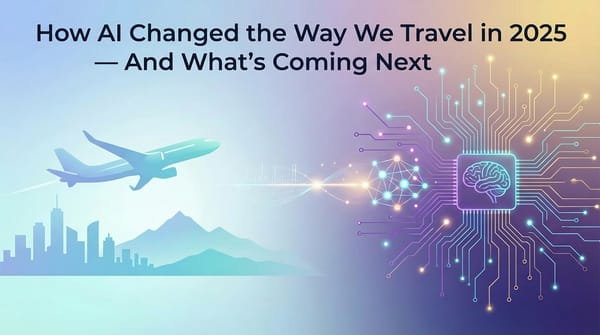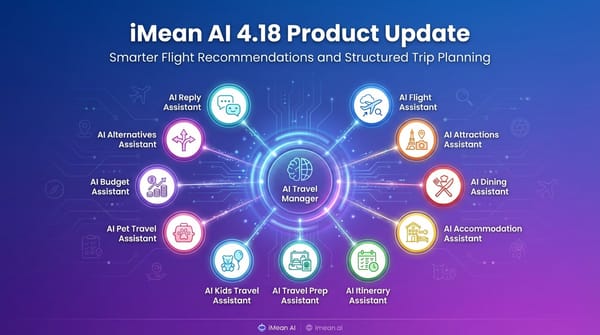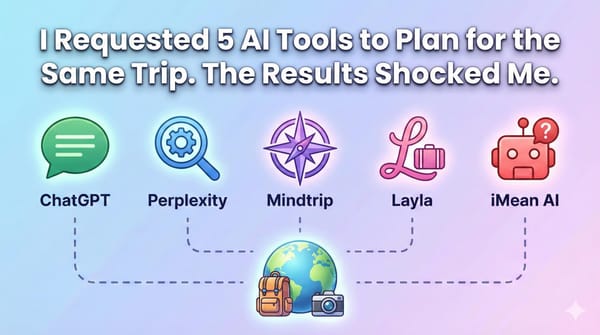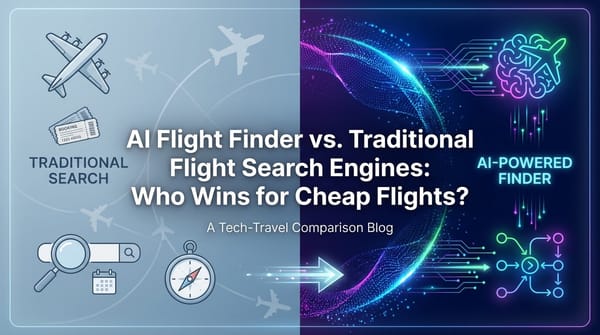Every semester, international students encounter many challenges: finding cost-effective ways to return to campus, especially those who are about to graduate and plan to organize celebratory graduation trips later.
For international students, travel is part of the academic journey, which means from returning to campus each semester to celebrating graduation with one last adventure. Planning these trips, however, often feels overwhelming: comparing endless flights, juggling budgets, and coordinating schedules with friends. iMean AI changes that. With its AI-powered trip planner, students can find affordable flights, choose the right hotels, and generate complete itineraries in minutes. What once took days of research now happens in a single conversation.
The Travel Challenge for International Students
For international students, travel is inseparable from academic life. Each semester begins with the familiar task of securing a flight back to campus, often at the lowest possible cost. But before the end of their student days, something more meaningful awaits: the graduation trip. It is the last chance to journey side by side with friends from every corner of the world, to explore together before everyone goes their separate ways to different countries and futures.
Traditional trip planning required manually comparing flights across multiple websites, evaluating hotel options, and spending hours compiling itineraries from guides and OTA platforms. The result was often incomplete or over budget.
This is where iMeanAI, an artificial intelligence travel planner steps in. Capable of generating a full journey in under 15 minutes, it integrates flight options, accommodations, and daily activities into one coherent plan. For overseas students balancing coursework and budgets, it represents an entirely new way to approach travel.
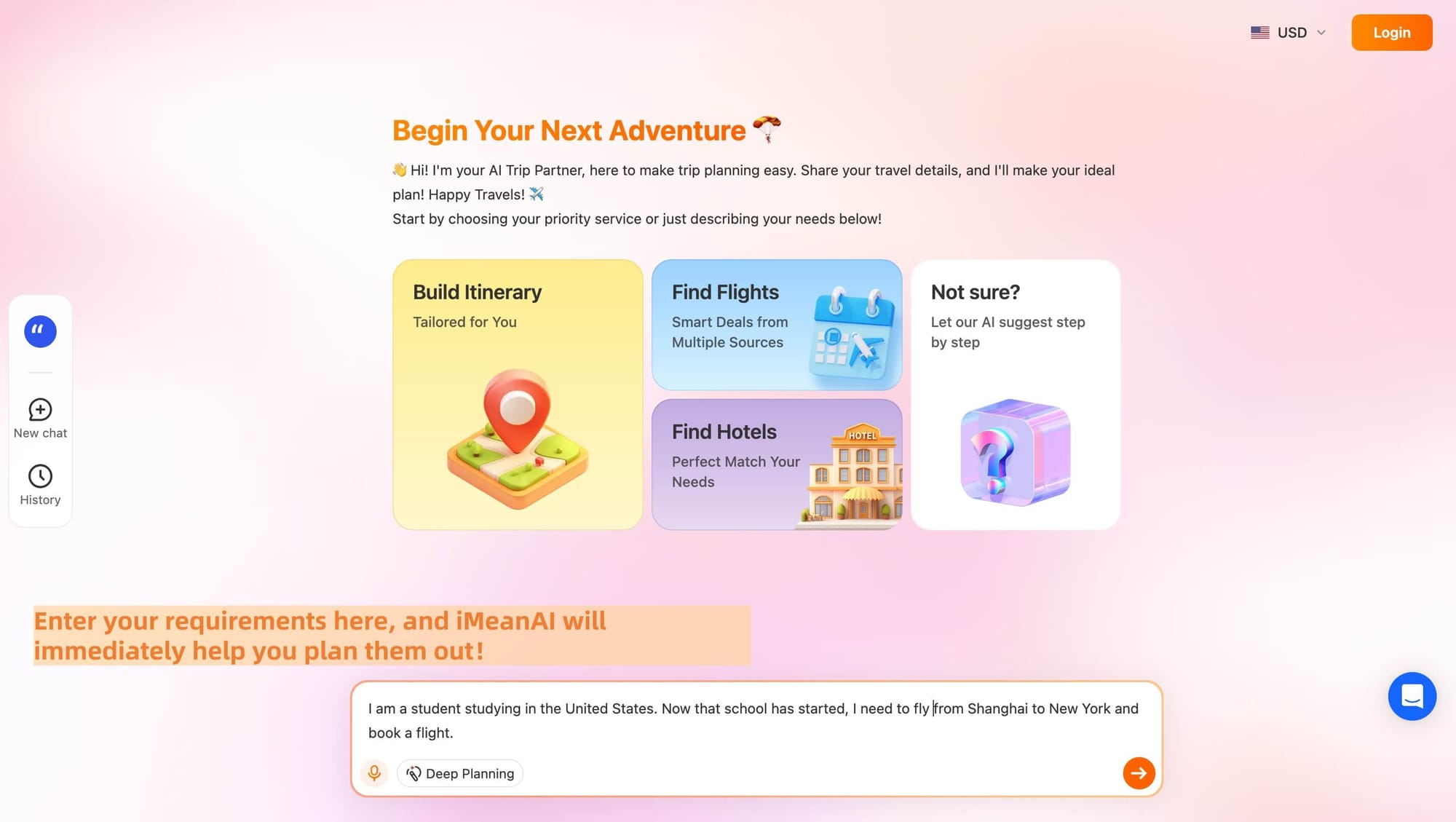
When graduation approached, the challenge shifted. Daniel planned to take a 10-day graduation trip to Europe, traveling from Newyork to Paris, and to Barcelona and then to Prague. It required combining multiple one-way tickets or complex multi-destination routes. A flight planner AI built into iMeanAI evaluated every possible connection, recommending routes that saved time without overspending. He could also explore flexible date options, seeing instantly how shifting a departure by one day could cut costs significantly.
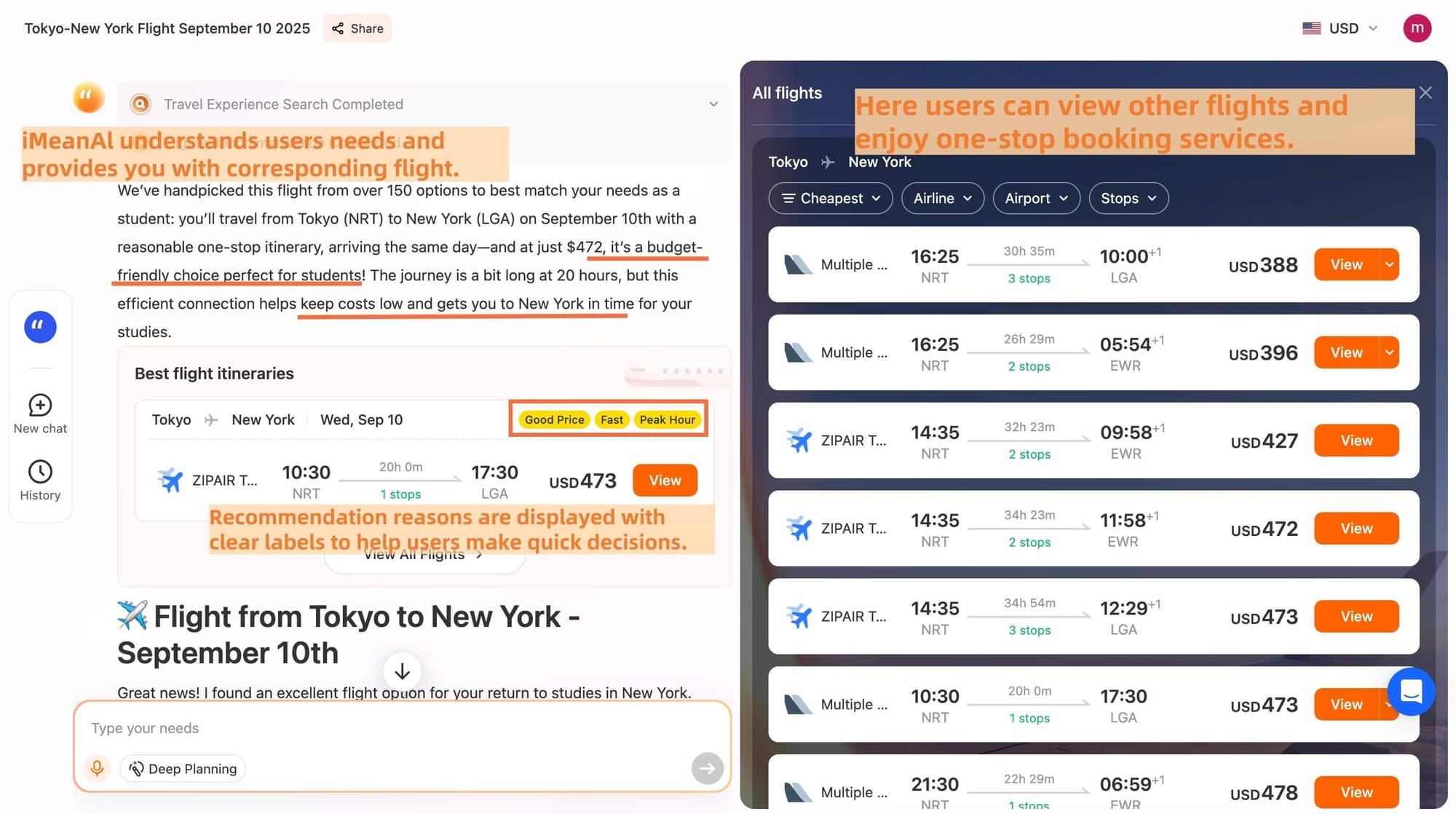
Instead of juggling endless spreadsheets, overseas students could get instant clarity. iMeanAI shows which flights are both affordable and reliable, freeing international students from the stress of constantly checking prices.
Smart Hotel Selection: Balancing Comfort and Budget
Finding accommodations that are both affordable and well-located has long been one of the most difficult parts of planning. International students often face the choice between budget hotels far from the city center and costly options near major attractions.
iMeanAI changes this equation. Instead of scrolling through hundreds of listings, Daniel planned his graduation trip by chatting with iMeanAI,and telling his needs with it: budget-friendly hostels near public transport in Paris, mid-range hotels close to Barcelona’s Gothic Quarter, and group-friendly apartments in Prague.
Within minutes, iMeanAI's AI hotel finder recommended hotels and explained the reasons for each choice. This removed guesswork and made it easier for them to balance comfort with cost. For overseas students who needed flexibility, a smart hotel booking tool prioritized accommodations with favorable cancellation policies, ensuring that sudden changes didn’t result in unnecessary fees.
For international students who already manage tight schedules and budgets, such clarity transforms hotel booking from a frustrating chore into a quick, confident decision.
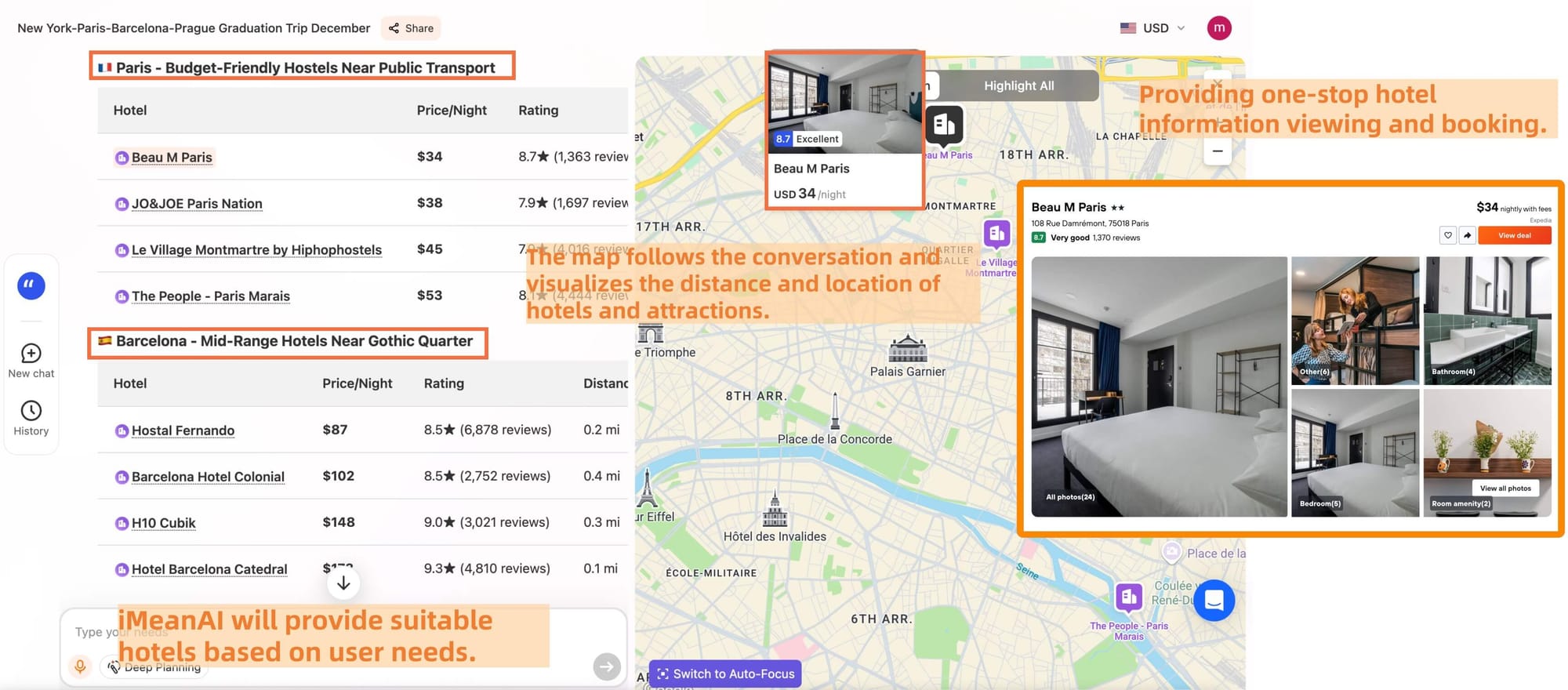
AI-Powered Itineraries: From Planning to Experience
The essence of a journey lies not only in transportation and accommodations but in the experiences themselves. Planning day-by-day activities across three cities is a challenge. Without careful organization, travelers risk either overloading their schedules or wasting time in transit.
iMeanAI, an itinerary planner powered by AI, addressed this by building structured daily schedules. For Daniel and his friends, the ten-day graduation trip was mapped seamlessly. In Paris, mornings were devoted to the Louvre, afternoons to neighborhood explorations, evenings to dining in small bistros. In Barcelona, the group balanced Gaudí’s masterpieces with local tapas bars. In Prague, they explored historical sites before unwinding with riverside walks.
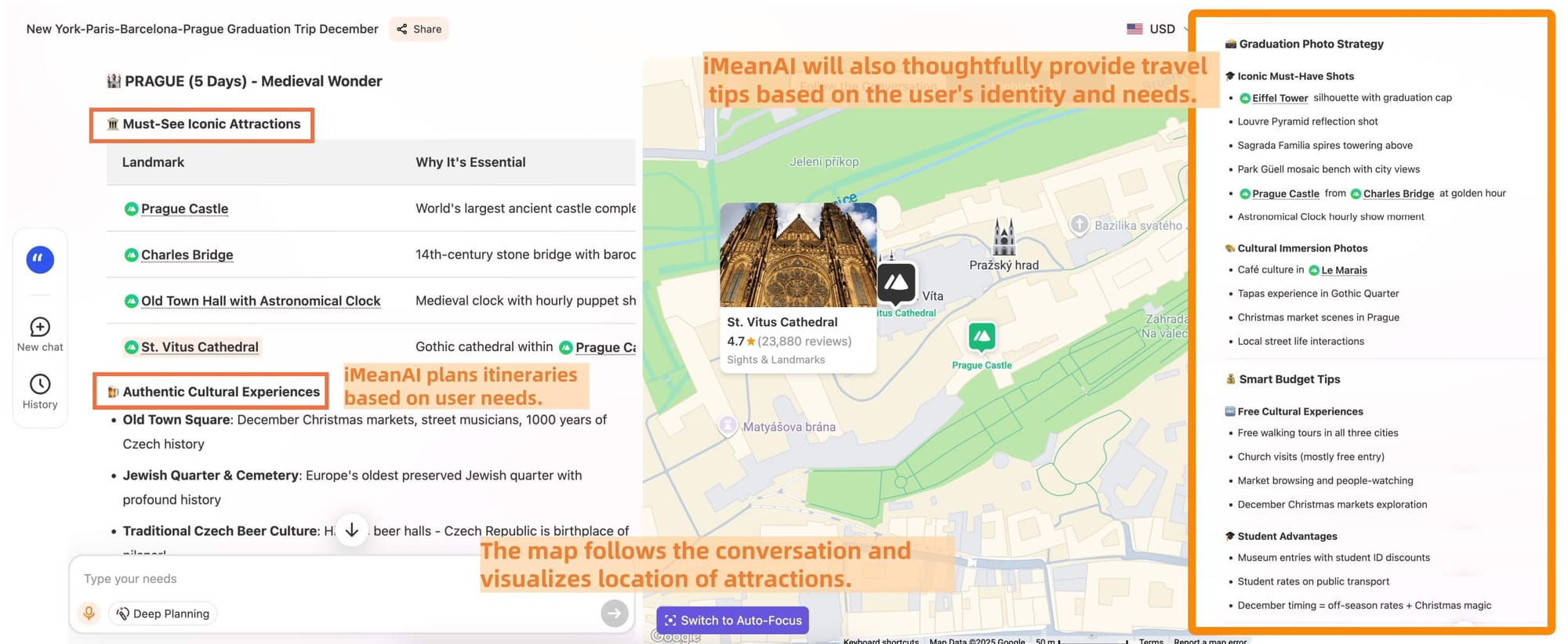
International students could easily adjust between busy sightseeing days and more relaxed cultural experiences by telling iMeanAI their preferences. Dining recommendations were seamlessly included in the itinerary, eliminating the need for last-minute searches, and synchronized maps ensured that routes were always clear and efficient.
In effect, the iMeanAI functioned as an AI trip assistant, ensuring the group maximized both their budget and their limited time abroad.
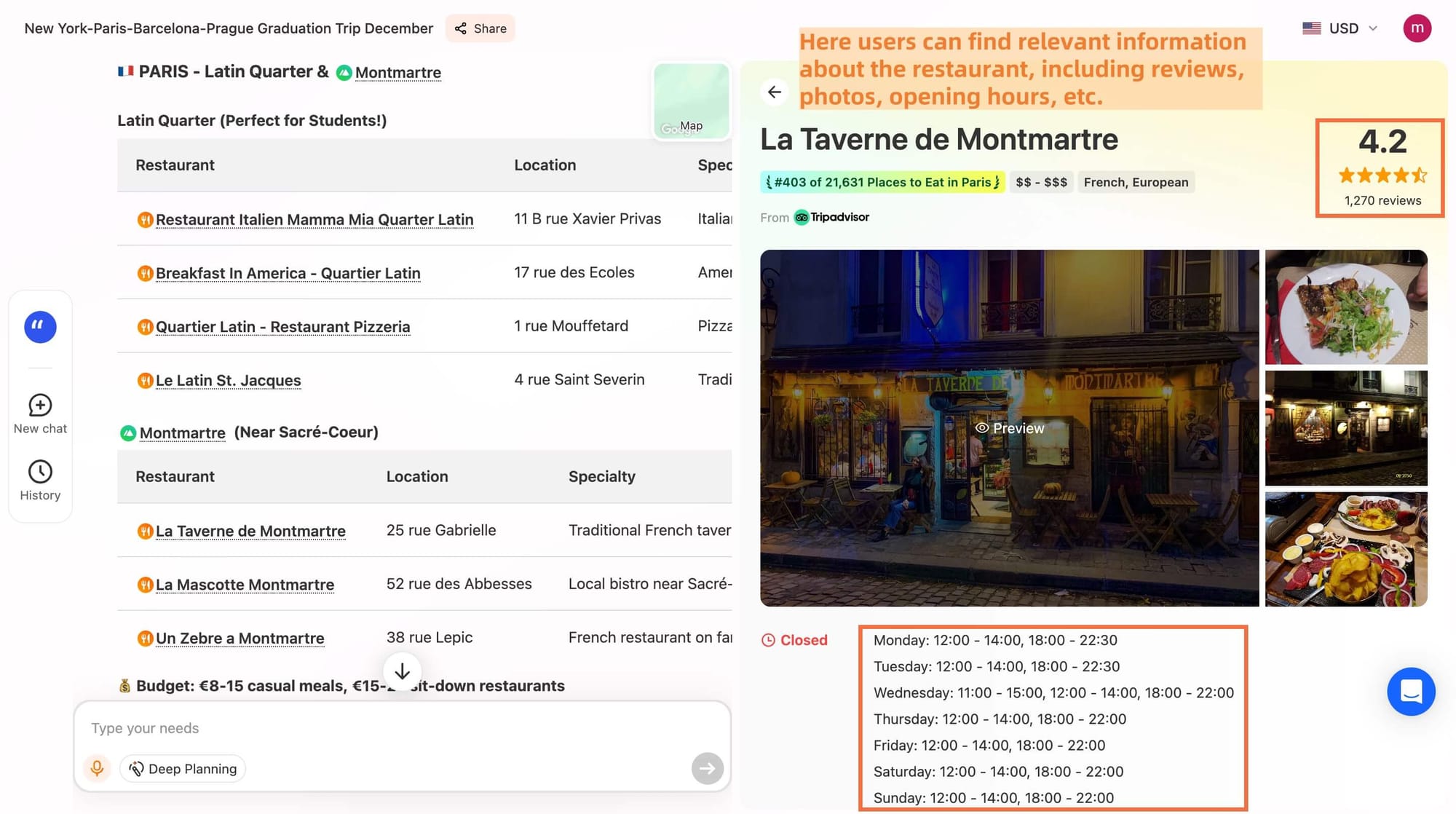
Efficiency, Freedom, and a Smarter Travel Experience
For international students, travel planning has historically been stressful, time-consuming, and often expensive. Whether searching for affordable flights to campus or piecing together a multi-city graduation trip, the traditional process required patience and compromise.
Now, with iMeanAI, these challenges are addressed directly. Flights are simplified through real-time scanning and clear labeling of options. Hotels are presented in ranked lists, supported by context that explains why each option fits a traveler’s needs. Daily activities are structured through an adaptive itinerary, giving overseas students confidence in both pace and budget. From the semester’s first flight to the celebratory final journey, iMeanAI reduces stress and amplifies value.
Ultimately, iMeanAI, a travel AI agent, emphasizes collaboration over automation. It serves as a reliable companion—an informed friend who understands constraints and preferences. By consolidating every detail into a single process, overseas students gain not only efficiency but also freedom: the freedom to focus on experiences instead of logistics, and to remember journeys for what they were meant to be—moments shared with friends, not hours lost to planning.
Plan smarter and travel with confidence!
Let iMean AI handle your student travel logistics so you can focus on the memories, not the stress.




